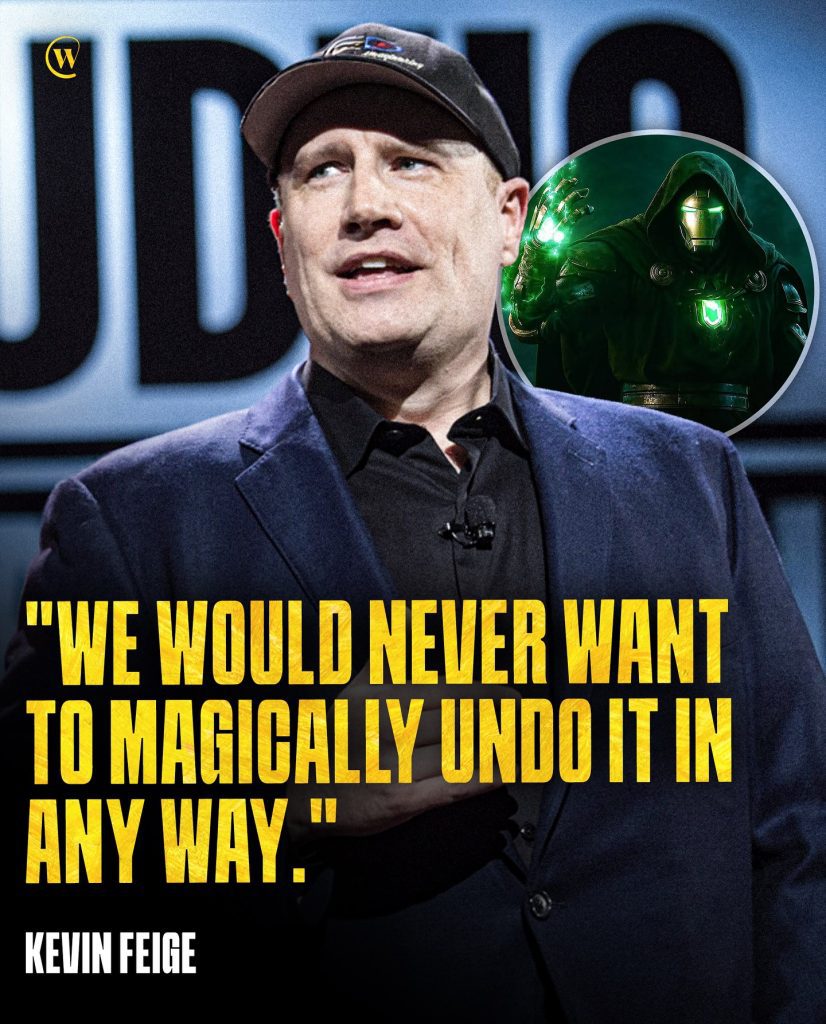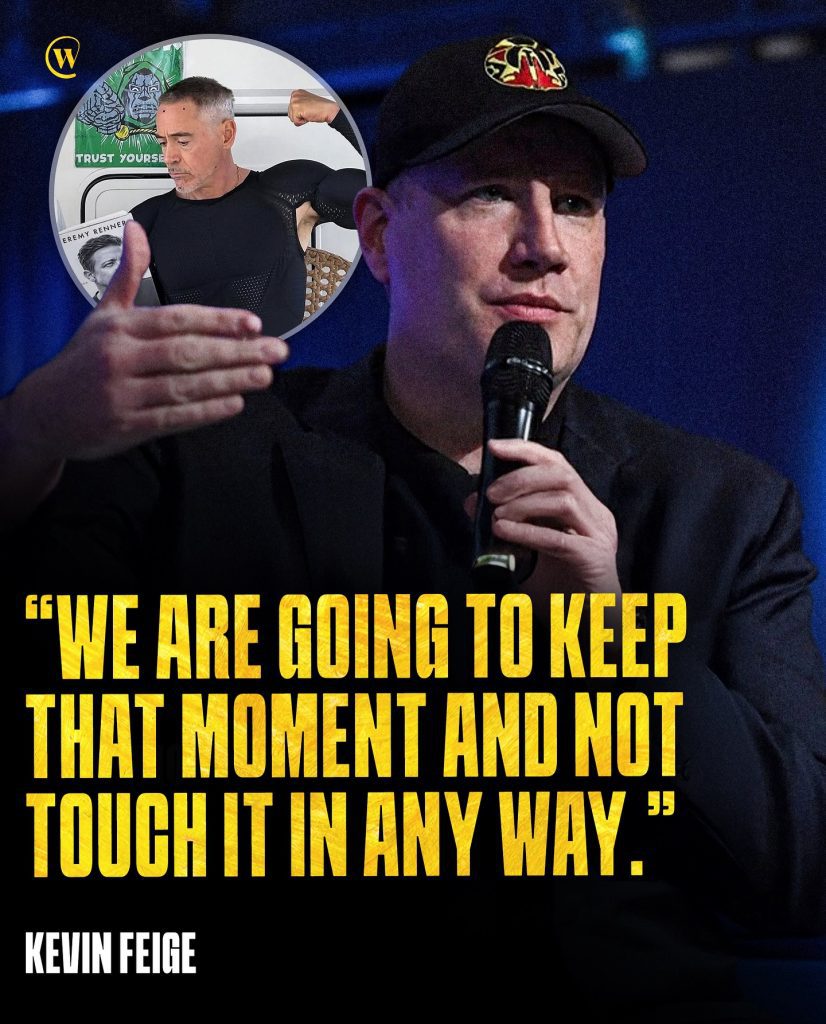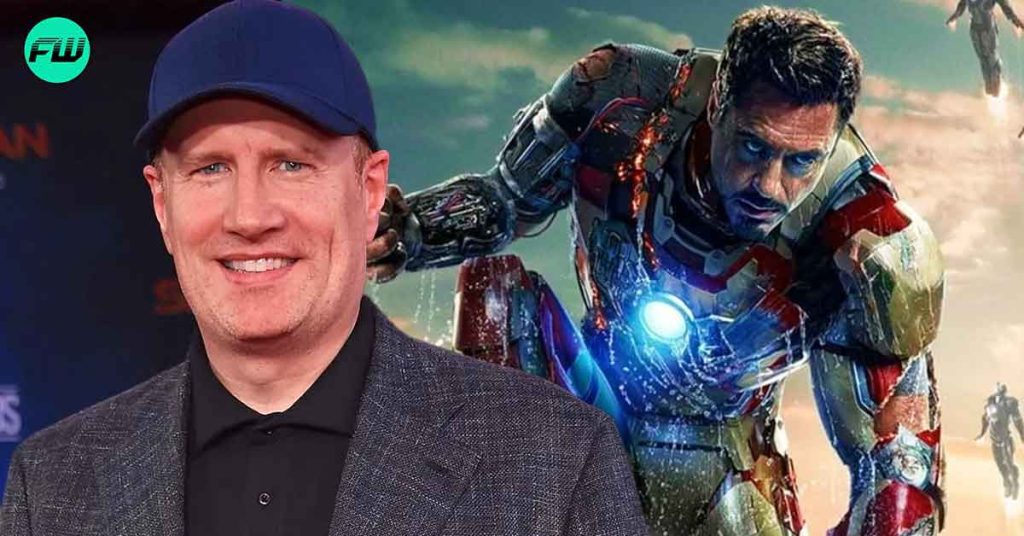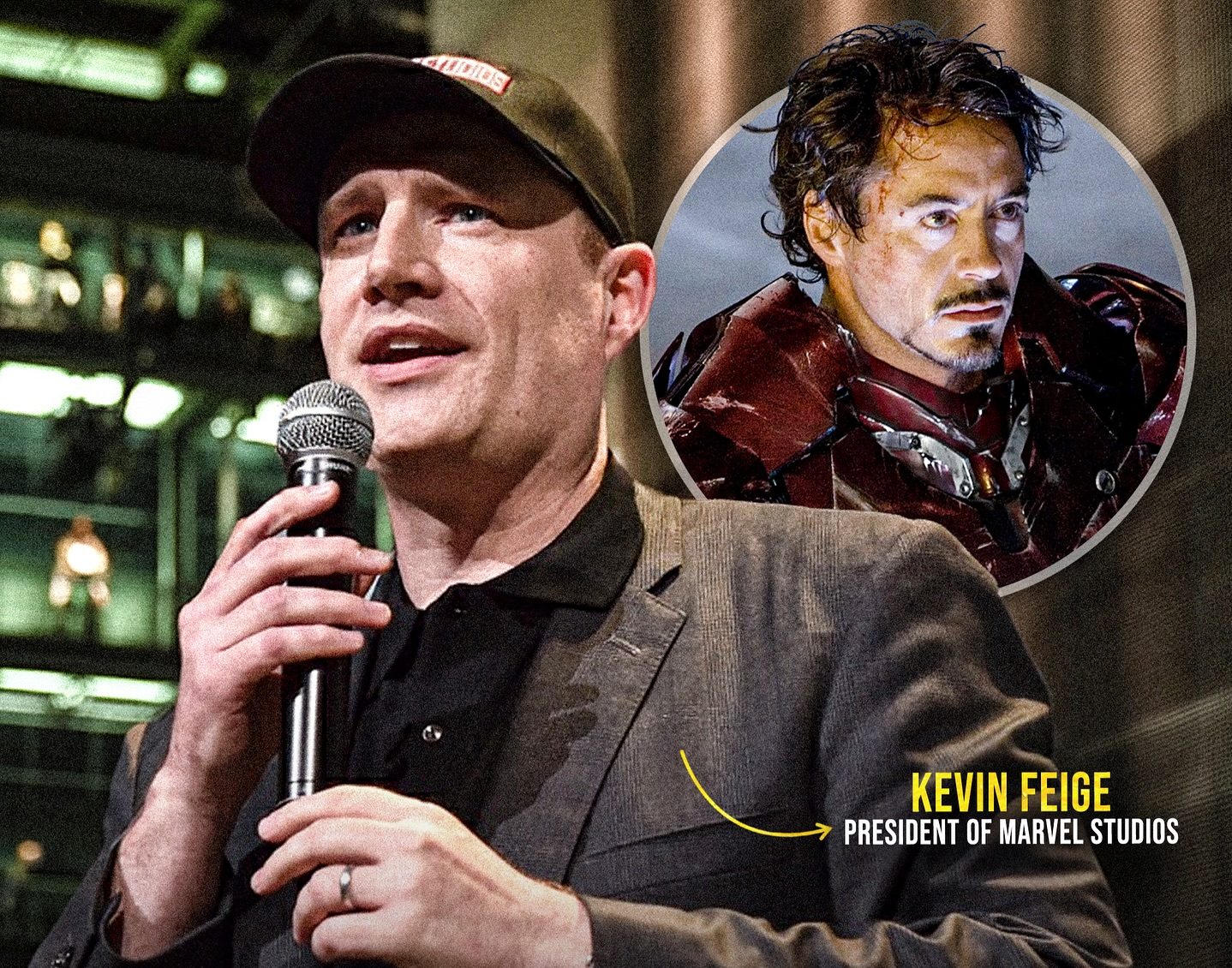Kevin Feige Confirms Marvel Will Never Resurrect Iron Man, Protecting Robert Downey Jr.’s Legendary Endgame Farewell Forever
When Avengers: Endgame hit theaters in 2019, it wasn’t just another blockbuster. It was the closing chapter of a decade-long saga that had built up through 22 interconnected films, each one setting the stage for the grand finale. Among the many moments that brought fans to tears, one scene stood above the rest: Tony Stark’s sacrifice. With those now-iconic words, “I am Iron Man,” Robert Downey Jr. sealed the fate of his character and delivered one of the most emotional cinematic farewells of all time.
For years, fans have wondered if Marvel might one day reverse that decision. In an industry where characters often come back from the dead, there has always been speculation that Iron Man could return. Rumors swirled about multiverse tricks, cameos, or technology-driven resurrections. But Marvel Studios President Kevin Feige has now put those hopes to rest with a statement that feels as definitive as Tony’s snap.
In a recent conversation, Feige addressed the possibility directly and with unusual clarity. He explained that Marvel has no intention of resurrecting Tony Stark. The reason? Respect. Respect for Robert Downey Jr., respect for the character, and respect for the fans who experienced that moment in Endgame as the culmination of years of storytelling. Feige noted that they never want to “magically undo it.” To him, the decision to end Tony Stark’s arc was not a marketing gimmick—it was storytelling at its most powerful, and that kind of impact should remain untouched.

It’s rare to hear a studio head speak with such conviction in an industry that thrives on nostalgia, sequels, and reboots. Hollywood often brings characters back simply because they sell tickets. Yet, Feige’s stance seems rooted in the belief that not all stories are meant to be reopened. Endgame wasn’t just another film—it was the emotional payoff of a generation of moviegoers who grew up with Marvel. Tony Stark’s final act wasn’t just a plot point, it was a cultural moment, something millions of fans worldwide experienced together in packed theaters, wiping away tears while applauding through their grief.
The importance of Robert Downey Jr. to Marvel cannot be overstated. When Iron Man premiered in 2008, Marvel Studios was far from the juggernaut it is today. The studio was taking a gamble, not only on a lesser-known character but on an actor whose career had been defined by both brilliance and controversy. Downey Jr. took that opportunity and didn’t just play Tony Stark—he embodied him. The humor, the swagger, the flaws, and the heart all came together in a way that no one else could have pulled off. Without Downey’s performance, the Marvel Cinematic Universe might never have taken flight.
That’s why Feige’s words carry so much weight. By refusing to resurrect Iron Man, Marvel is acknowledging that some legacies are too important to tamper with. Bringing him back in a new movie might sell tickets, but it would cheapen the weight of his sacrifice. It would turn that raw, heart-wrenching goodbye into just another twist in a franchise filled with them. Fans may think they want to see Iron Man again, but deep down, they know the power of that Endgame moment lies in its permanence.

This doesn’t mean Robert Downey Jr. will never appear in the Marvel world again. Already, he is set to play a completely different character in a new project. And with the multiverse now fully in play, Marvel has the tools to bring back any version of any character if they ever wanted to. But Feige’s comments draw a firm line: the Tony Stark we followed for 11 years is gone, and his story will remain closed. That’s not a limitation—it’s a promise to fans that Marvel values story integrity over cheap surprises.
It’s also a reflection of how storytelling has evolved in superhero films. In the past, death rarely stuck in comic book adaptations. Characters who died in one film often reappeared in the next. But as audiences have grown, so have their expectations. Today’s viewers want emotional authenticity. They want to feel that the sacrifices characters make matter. By holding firm on Iron Man’s ending, Marvel is proving that it understands the difference between spectacle and storytelling.
Of course, that hasn’t stopped fans from speculating. The internet is filled with theories about alternate universe versions of Tony Stark, digital recreations, or cameos in secret projects. Marvel is famous for keeping surprises under wraps, so speculation will always exist. But the clarity in Feige’s words signals that even if the studio plays with nostalgia in other ways, Iron Man’s farewell is off-limits.
This decision also shows the studio’s respect for Robert Downey Jr. himself. The actor poured more than a decade of his life into the role, shaping an entire cinematic era. Allowing him to step away with dignity, rather than dragging him back for diminishing returns, is an act of gratitude. Downey Jr. has spoken in the past about how meaningful the character was to him and to his fans. Preserving that ending allows his legacy as Tony Stark to remain pure.

The financial side of this cannot be ignored either. Avengers: Endgame became the second-highest-grossing film of all time, earning about $2.8 billion worldwide. Much of that success came from the emotional weight of its conclusion. Fans knew they were witnessing something final, something unrepeatable. To undo that now would risk tarnishing one of the most successful cultural moments in modern cinema.
Kevin Feige’s words remind us that sometimes restraint is the most powerful choice a storyteller can make. It’s easy to give in to demand and nostalgia, to bring back a fan favorite for a little more box office magic. But the courage to say “no” and leave a moment untouched—that’s what gives stories their staying power.
In a cinematic universe filled with gods, multiverses, and infinite possibilities, Tony Stark’s humanity is what made him unforgettable. He was flawed, he was brilliant, and he was ultimately selfless. His ending gave weight not just to his own arc, but to the entire Infinity Saga. And that’s why Marvel’s refusal to resurrect him is perhaps the greatest tribute they could give to both the character and the fans.
Iron Man’s mask may be retired, but the legacy of Tony Stark lives on in every corner of the MCU. From the technology he inspired to the characters who carry on his vision, his presence is still deeply felt. But as far as Kevin Feige is concerned, that final snap belongs to history—and it will stay that way.

